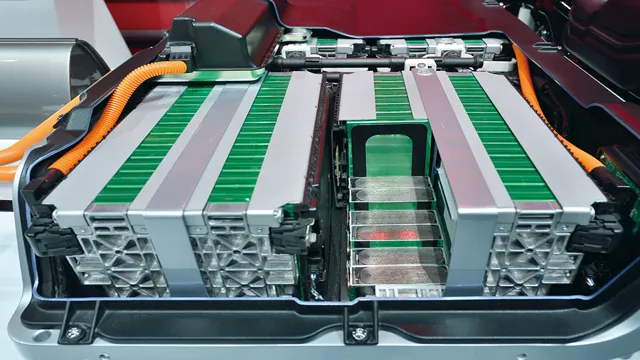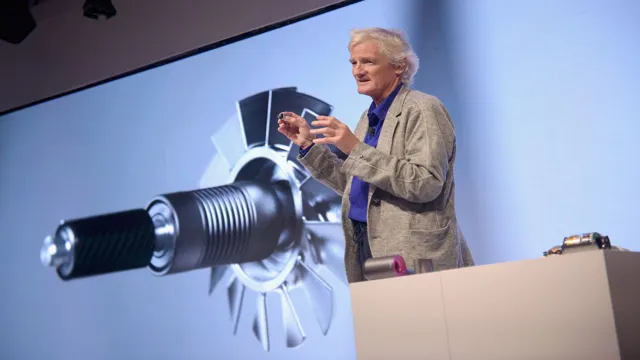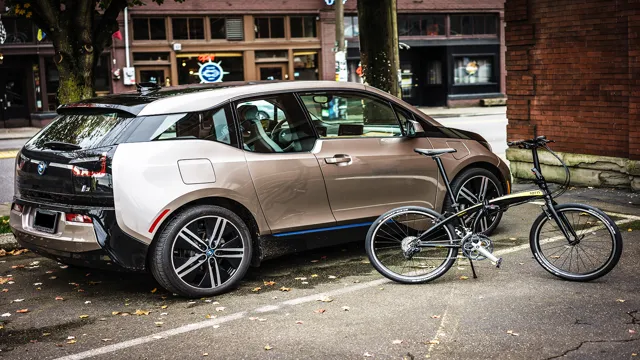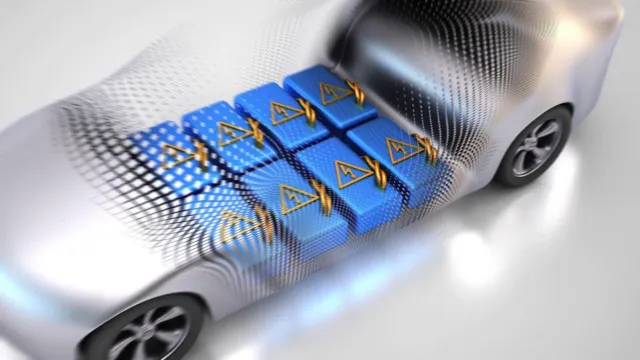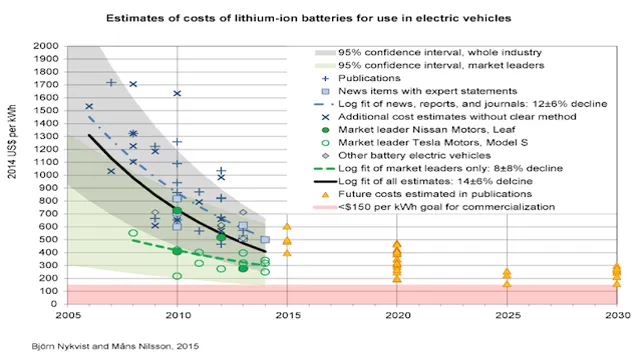Revolutionizing the Road: The Power of Electric Car kWh Batteries
Electric cars have taken the market by storm and have become an increasingly popular alternative for many drivers, with more companies producing EV models. The most crucial component of an electric vehicle is its battery, and it’s no secret the automotive industry is investing significantly in improving electric car batteries. As a result, the power of electric car batteries has increased, and the distance they can cover has significantly improved.
But, do you know how electric car batteries work? This article delves into the mechanics of electric car batteries and explores how they have transformed the automotive industry. So, fasten your seatbelts, and let’s explore the tremendous power of electric car batteries.
Understanding KWh Ratings
When it comes to electric cars, one of the most important things to consider is the battery’s kWh rating. Kilowatt hours (kWh) measure the amount of energy that a battery can store and supply to the car’s electric motor. A higher kWh rating means that the battery can store more energy, allowing the car to travel further on a single charge.
This is why the kWh rating is such a significant factor when selecting an electric car. It’s like the size of a gas tank in a traditional car – the bigger the tank, the further you can travel before needing to refuel. When comparing electric cars, it’s important to consider both the kWh rating and the car’s overall range to determine how far it can travel on a single charge.
A car with a high kWh rating might not necessarily have the longest range if it isn’t as efficient as other cars. There are many factors to consider when choosing an electric car, but the kWh rating is one of the most important when it comes to maximizing range and efficiency.
What is a KWh Battery?
A KWh battery is a type of battery that is rated based on its energy storage capacity. KWh stands for kilowatt-hour, which is a unit of energy. It signifies how much energy the battery can hold and how long it can supply power.
Essentially, it helps to determine the battery’s endurance, which is crucial when it comes to powering electronic devices, electric vehicles, and renewable energy systems. For instance, if a battery has a KWh rating of 10, it can supply 10 kilowatts of power for one hour. Hence, the higher the KWh rating, the longer the battery will last and the more power it can store.
Understanding KWh ratings is essential if you want to choose the right type of battery for your needs.
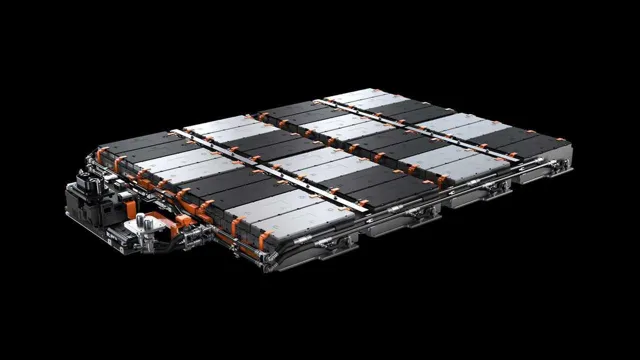
How KWh Affects Electric Car Range
Electric car range is directly impacted by its KWh rating. KWh refers to kilowatt-hours, which measures the amount of energy stored in a battery. The higher the KWh rating, the more energy the battery can store, which translates to a longer range.
For example, if an electric car has a 50 KWh battery and an average range of 200 miles, it will use approximately 25% of its battery charge for every 50 miles of driving. However, if the same car had a 75 KWh battery, it could achieve a range of around 300 miles, as it has a higher capacity. Although a higher KWh rating can lead to a longer range, it also comes with a higher price tag.
It’s essential to consider your driving needs and budget before deciding on the best KWh rating for your electric car.
Comparing Electric Car Battery Sizes
When it comes to buying an electric car, one of the most important factors to consider is the size of the car’s battery. This is measured in kilowatt hours (kWh). The larger the battery, the more energy it can store, which means you’ll be able to go further on each charge.
To give you an idea of the range of battery sizes available, the Nissan LEAF has a 40 kWh battery, while the Tesla Model S has a range of battery sizes from 75 kWh to 100 kWh. So, what does this mean in practical terms? Well, if you’re just using your electric car for commuting and short trips, a smaller battery like the 40 kWh LEAF could be perfect for you. However, if you want to use your electric car for longer trips or just want the peace of mind of knowing you won’t run out of charge, then a larger battery like the 100 kWh battery in the Tesla Model S might be a better option.
Ultimately, the size of the battery you choose will depend on your individual needs and driving habits.
Tesla Model S KWh Battery vs Nissan Leaf KWh Battery
When it comes to electric cars, one of the most important components is the battery. Two of the most popular electric cars on the market today are the Tesla Model S and the Nissan Leaf. While both vehicles run on electricity, there is a significant difference in the size of their batteries.
The Tesla Model S has a battery with a capacity of up to 100 KWh, while the Nissan Leaf has a battery with a capacity of up to 62 KWh. This means that the Tesla has a larger battery, allowing it to travel further on a single charge. However, it’s worth noting that battery size isn’t the only factor to consider when choosing an electric vehicle.
Other factors include charging time, driving range, and overall cost. So, while the Tesla Model S may have a larger battery than the Nissan Leaf, it may not necessarily be the best choice for everyone.
Advantages of a Larger KWh Battery
When it comes to comparing electric car battery sizes, it’s essential to consider the advantages of a larger kWh battery. One of the most significant advantages is increased driving range, giving drivers more peace of mind when it comes to longer trips. Additionally, a larger battery can provide faster acceleration and higher top speeds.
If you’re someone who loves the thrill of driving and wants a car that can keep up with your need for speed, a bigger battery might be the right choice for you. Another advantage is the ability to charge less often, saving you time and money. While a larger battery may come at a higher price point initially, the long-term benefits are worth considering, especially for those who rely on their electric vehicle for daily use.
Overall, when comparing electric car battery sizes, it’s essential to think about your needs and priorities, and decide if a larger battery is the best fit for both your lifestyle and budget.
Why a Smaller KWh Battery Might Be Enough
When considering electric cars, one of the major factors to consider is the battery size. Common knowledge dictates that a bigger battery means longer driving ranges, but that may not always be the case. A smaller kWh battery might be enough for regular daily usage, and it couldn’t hurt to save some money.
The key is to compare battery sizes based on daily driving needs and the availability of charging stations in your area. If your commute is short or if you have access to charging stations along the way, a smaller battery might be enough to get you around town. It is worth noting that smaller batteries also tend to be lighter and cheaper, which can be great for affordability, handling, and overall performance.
When deciding on an electric car, don’t just assume that bigger means better. Consider all the factors and make a decision that fits your needs and budget.
Maximizing Your Electric Car’s KWh Battery Life
If you own an electric car, you know firsthand the importance of maximizing your vehicle’s kWh battery life. Thankfully, there are several things you can do to make the most out of your car’s battery. First and foremost, be mindful of your driving habits.
Aggressive or speedy driving can quickly deplete your battery, so try to take things slow and steady if you want to conserve power. You should also pay attention to your car’s charging habits – frequent “fast-charging” can actually shorten your battery life over time. Instead, aim for a slow and steady charge whenever possible.
Additionally, keeping your car’s battery at a moderate temperature (around 68 degrees Fahrenheit) can help extend its life. By taking these steps, you can ensure that your electric car’s battery lasts as long as possible – and save money in the long run, too!
Tips for Preserving Battery Life
Maximizing Your Electric Car’s KWh Battery Life can be challenging, but it is essential to get the most out of your car and save money in the long run. One of the best tips for preserving battery life is to charge it frequently, but not to full capacity. This will help reduce the strain on the battery and prevent it from degrading quickly.
Another tip is to avoid excessive acceleration and heavy braking, which uses up more energy and can also be hard on the battery. You can also maximize your car’s range by reducing your speed on highways and using the regenerative braking system when possible. And lastly, try to avoid extreme hot or cold weather conditions, which can also affect the performance of your battery.
By following these tips, you can extend the life of your KWh battery and enjoy a more efficient and reliable electric car experience.
The Importance of Regular Maintenance
Regular maintenance is critical for maximizing the life and performance of your electric car’s KWh battery. Without proper care, your battery’s capacity can decrease over time, reducing its overall efficiency and range. To avoid this, it’s important to keep your battery charged within the recommended range, avoid extreme temperatures, and regularly schedule maintenance checkups with a professional.
Think of it like keeping a plant alive – you wouldn’t neglect it and expect it to thrive. Similarly, your electric car’s battery requires consistent attention and care to ensure it lasts for as long as possible. By taking proper care of your car’s battery, you can extend its lifespan and maximize your investment in this eco-friendly and cost-effective mode of transportation.
The Future of Electric Car Batteries
The future of electric car batteries is very exciting, and it’s all thanks to advancements in technology. One of the biggest breakthroughs has been the development of higher capacity batteries. These batteries offer a much larger amount of energy density compared to their predecessors.
We’re talking about batteries that can store anywhere between 40 to 100 kilowatt hours (kWh) of electricity. This translates to a range of around 200 to 300 miles on a single charge. The higher capacity batteries are also more efficient, meaning they can be charged faster and hold their charge for longer periods.
This is all great news for electric vehicle owners, as it means they can drive even further without worrying about needing to recharge. Overall, the future is looking bright for electric car batteries, and with more research and development, we can expect even more exciting innovations in the years to come.
Conclusion
In conclusion, the electric car battery, measured in kilowatt-hours (kWh), is the heart and soul of electric vehicles. It’s what powers the wheels and keeps the car going for miles and miles. Much like our own hearts, the kWh battery needs to be properly maintained and cared for to ensure peak performance.
But unlike our hearts, the kWh battery can be recharged and reused over and over again, making it a sustainable and eco-friendly choice for transportation. So if you’re looking to reduce your carbon footprint and join the electric car revolution, make sure you pay attention to your kWh battery – it’s the key to a smooth and powerful ride!”
FAQs
What is the average kWh battery capacity of an electric car?
The average kWh battery capacity of an electric car is around 60 kWh.
How many miles can an electric car travel on a 60 kWh battery?
An electric car can typically travel around 240 miles on a 60 kWh battery.
How long does it take to fully charge a 60 kWh battery on a Level 2 charger?
It takes approximately 8-10 hours to fully charge a 60 kWh battery on a Level 2 charger.
Can an electric car battery be upgraded to a larger capacity?
In some cases, an electric car battery can be upgraded to a larger capacity, although it can be expensive and may void the warranty. It’s best to discuss upgrade options with your car manufacturer or dealer.
